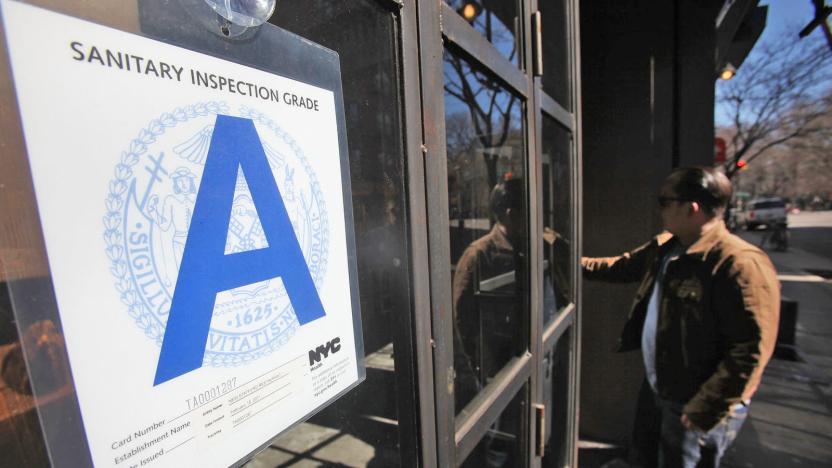poisoning
Latest

Google model identifies restaurants that could give you food poisoning
Google could soon tell you which restaurants are more likely to give you food poisoning, thanks to an algorithm that can identify lapses in food safety in near real time. Working with researchers from Harvard University, Google tested a machine-learned model in Chicago and Las Vegas to identify user search queries such as "stomach cramps" or "diarrhea", and then cross-referenced them with saved location history data -- in particular recently-visited food establishments -- from the smartphones used to make those searches.

Facebook and YouTube are removing 'Tide Pod Challenge' videos
In the year 2018, nobody expected human society would need an intervention to stop people from eating (drinking?) laundry detergent. And yet, actual thinking people are recording themselves consuming Tide Pods, which inspires others to follow suit on camera, begetting an endless cycle of Darwinian consequences. According to CNN, YouTube and Facebook have committed to taking down this content, proving so many critics of the internet right.

Wintek workers still experience effects from n-hexane exposure, Apple issues a report
It's been a few months since we checked in on the workers at Wintek, where they manufacture touchscreens for the likes of Apple. As you might remember, the former company was facing a lawsuit for chemical poisoning that occurred between May 2008 to August 2009 when the company substituted alcohol for n-hexane in the manufacturing process. Both Apple and Wintek maintain that ultimately a total of 137 people had been hospitalized, and all have recovered -- but as Reuters points out, daily exposure to the chemical has been known to cause "long-term and possibly irreversible nerve damage," and Wintek employees have maintained that the company has left them holding the bag for symptoms that could very well flare up again in the future (or, in some cases, never really went away). "We are unable to cope with the medical costs of treatment in the future," said Guo Ruiqiang, a worker at the plant. "We can only stay in the factory and see what happens. We just feel very helpless now." For Apple's part, the company has mandated that Wintek "work with a consultant to improve their Environmental Health and Safety processes and management systems" in anticipation of a complete reaudit of the facility in 2011. [Warning: PDF More Coverage link]

44 Chinese workers sue Wintek over screen cleaner poisoning
If you've got an early Apple iPad, chances are its screen was cleaned with a banned substance called n-hexane, which releases a toxic nerve gas upon use. 2,000 workers at Wintek's East China LCD plant went on strike in January, claiming the substance was poisoning them, and now 44 of those reportedly affected are planning to sue. According to reports, the screen cleaner was originally used because it performed better than alcohol, but Wintek has since fired the factory manager who suggested n-hexane and discontinued its use. That didn't keep 62 workers from winding up in the hospital, however. The Guardian interviewed two hospitalized workers last week, and you'll find their stories at our more coverage link below. We're sure you'll agree these Chinese labor violations are getting out of hand -- let's hope this lawsuit spurs government and industry to do something concrete about worker abuse.

10.5.5 update fixes DNS vulnerability
Apple's Mac OS X 10.5.5 update (and Security Update 2008-006) fixes a critical DNS vulnerability that could allow attackers to trick victims into visiting malicious Web sites using what's known as a "cache poisoning attack." We wrote about the vulnerability in August. Although Apple's release notes say BIND was updated "to address performance issues," the update also delivers the promised address port randomization that protects users from such cache poisoning attacks. The original patch offered protection for Apple's servers but did not completely protect client systems. Apple's updates fixed flaws in several applications and system components, including some that attackers could use to run unauthorized software on a user's computer. [Via IDG.]

